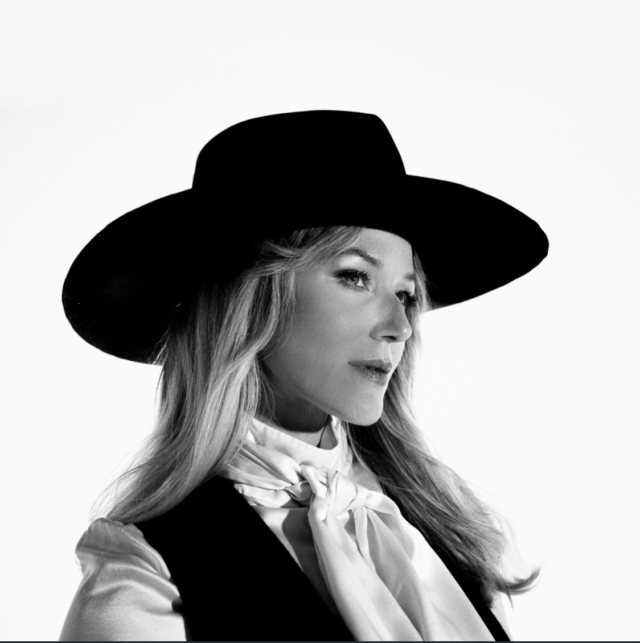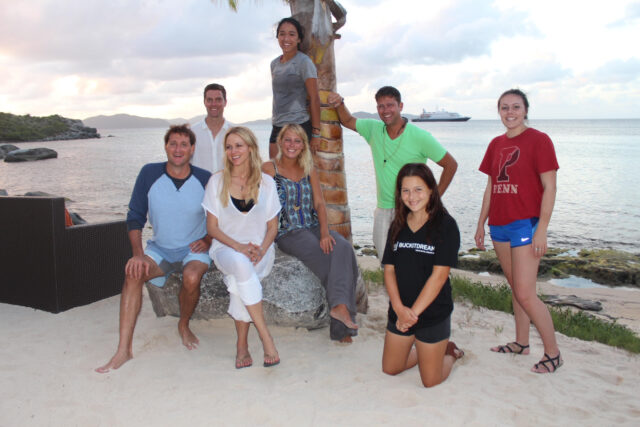
By Ray Rogers
Ray Rogers: Hi, Jewel. What part of the world are you in?
Jewel: I’m in the Rocky Mountains, up high in the mountains on a sunny and delightful day. Fall colors are just starting to come.
RR: I know wellness is very important to you. What would you say is your wellness philosophy?
J: Hmm. In three words or less? My wellness philosophy would be to consider our education of what it takes to learn to be a whole human. Wellness comes through harmony, not balance. Balance means you have to keep everything the same, these two scales; it’s an impossible proposition. But when you think in terms of harmony, there are multiple elements that you want to bring into harmony. If you look at wellness, where you’re trying to bring multiple systems where they sing together, that’s a whole different approach. So imagine a CEO who may have been raised in a home of entrepreneurs. A great tone, lots of great muscles in the CEO limb, but he might have poor tone in his intimacy or parenting. You have pain, you have a lack of harmony. Just like if you’re working out, if all you did was leg presses, you’d hurt your back eventually. You have to train your entire muscular system. You have to do it to yourself, too.
It’s a whole human approach as I call it, where we can help people get education that’s usable in every area of our life. Because we need every area of our life to be robust. That would be more my philosophy in my life, that’s what I spent my life educating myself in. Seeking out the best mentors and educators to gain that knowledge that I was lacking because of poor health at a young age, moving out at 15. I had a lot to learn, and was very frustrated there was no school I could go to. So at my wellness festival, creating this sort of whole human model where I can democratize wellness and create a place where people can go to learn from me, has been the real fun part.
RR: How has the focus on wellness helped you to navigate the ups and downs of the music industry?
J: I moved out when I was 15 and I knew statistically kids like me end up repeating the cycle that they’re raised in. So my goal at 15 was to not become a statistic. I did pretty good, until I was 18. I wouldn’t have sex with the boss and he wouldn’t give me my paycheck. I was living in my car, and then my car got stolen. I ended up writing songs because I was stealing a lot, and I tried to replace that behavior with writing. I started singing in a coffee shop and I got discovered. The way this relates to your question is that I almost didn’t sign my record deal because I figured that if you take somebody with my emotional background and you add, god forbid, fame to the mix, that’s what every movie that’s ever been made is about, with every musician. And again, I didn’t want to be a statistic. I didn’t think I could handle public scrutiny, because I was so emotionally dysfunctional still. And I knew it. So I made a promise to myself: I would make being a happy, whole human my No. 1 job. And No. 2 would be to be a musician. And if I promised myself I’d never switch those two around, I’d let myself sign that deal and I did. And I think I did pretty good. I would take years between records, switch genres regularly. Things that are considered career suicide. But I needed those years off to adjust psychologically to the lifestyle shift that had happened. To make sure my inner growth is the priority, because fame obviously is very unhealthy in a lot of ways. I was able to make a career livable to me, where the prop in my industry is you just keep going. Make a record, and another record. That’s why there’s so many burnouts and so many kids getting on drugs. It’s sad.
RR: This is the 25th anniversary of your debut, Pieces of You. Looking back on that, how in touch are you with who you were then? I’m curious about your remembrance of that time, and personal growth since then.
J: I look back on that time in my life, which was a very productive time, even though I was homeless: It was the best and worst time of my life. It was kind of a make-or-break moment. I was having panic attacks and I was agoraphobic. Bad kidneys, bad health problems. Stealing a lot. I remember this one moment, I was in a dressing room trying to steal a dress, and I looked at my reflection and said, “I am a statistic.” That goal I had at 15 of not becoming a statistic, it didn’t work. I was going to end up in jail or dead if I didn’t turn my life around. I remember this quote by Buddha, or at least that I attribute to Buddha, saying “Happiness doesn’t depend on who you are or what you have, it depends on what you think.” I had nothing left but my thoughts. And I tried to see if I could turn my life around at that time.
When I look back on my life and I think of that year of make-or-break time, where you’re either gonna die or figure out a better way to live, that’s what really shocks me. And what do we do with pain? That’s why I wrote songs. How do we handle pain if we aren’t taught happiness? Is it learnable? Those questions I started asking myself then that I began writing songs about, like “Daddy” and “Amen” and “Painters.” I was wondering, “Can I be the artist of my life?” and invent my world. Looking back 25 years later, being able to have the answers to those questions is pretty neat.

RR: You have created your life. Your song “Grateful” is a preview of the new album that’ll be out early in 2021. Practicing gratefulness is a tenet of wellness for a lot of people. Tell me what role that plays in your life.
J: That year, I was trying to find a way out of my panic attacks. I took lots of notes and wrote a lot. And I realized there are only two states of being. There’s dilated, and contracted. Every thought, feeling or action exists in either of those two states. That was really exciting to discover, because that simplifies an emotional and complex inner and outer world for all of us. Every single thought, feeling or action leads to dilation or contraction. I started making a list of what feelings dilated me, and what feelings and actions contracted me. And then I began to get curious as I learned. Mindfulness, that word wasn’t around yet, I don’t think was invented yet. But a lot of these things were mindfulness exercises. Learning how to be present in real time. I noticed that as I had anxiety, obviously my whole system contracted. So I wanted to see if I could hack my way out of a contracted state, forcing myself into a dilated state. So starting to recognize that, there’s two states of being, I can’t be in two at once, I remember I felt this panic attack coming on, I was on a street corner. And I decided to become grateful. Because that was a feeling that I could tell dilated me and I could feel a weight to it. Then I saw the sun coming through the trees and it was beautiful. And it reminded me of being a little girl in Alaska, and laying on meadows and having the sun shining through trees. And I suddenly became profoundly grateful, and that’s the truth. You have to have it in your whole body. It can’t just be a mental thing, And I was moved to tears in that moment, and it was the very first moment I was able to ward off a panic attack. Which for me is life-changing. So that’s what I wrote the song about the power of gratitude.
RR: Is there anything you do in your daily life on a personal basis to maintain mental health
and overall health?
J: Well, I have a practice I do everyday. About an hour by myself—meditating, journaling. I always have a running list of things I’m working on. I set aside an hour every day to spend time with myself. We spend time on so many things and developing so many relationships, but we really don’t develop a relationship with ourselves. Cultivating a place where you get to fall in love with your life, and your bliss, your purpose and passion. It took a long time for me to carve that time out. I stick up for that time more than I do working out. Exercise comes second.
RR: Tell us about the launch of The Wellness Experience summit and concert on World Mental Health Day (Oct. 10), which benefits your Inspiring Children Foundation.
J: The wellness festival was a longtime dream of mine, of this whole human idea: a place where I can democratize wellness. Something that I realized as I became a celebrity is that information is often elite. For me to get a hold of the best experts, and talk to them, and filter off people selling something versus people with really good information, it was like a full-time job. And it took my celebrity, which is weird. I never used my celebrity to get a table at a nice restaurant. It’s to get a hold of doctors that are very hard to get a hold of.
RR: What a fabulous use of your celebrity status then.
J: I think so. But I want everyone to know this information. I had to study nutrition for 20 years to figure out how to work with my health, my genetics. So the wellness festival is just democratizing wellness information, in every area it takes to be a whole human. The talks help with parenting, with emotions, physical, mental. It’s going to go online because of COVID, which made a whole other type of speaker available too. And you don’t have to be in Cincinnati, or travel for it. I’m excited about it. inspiringchildren.net



